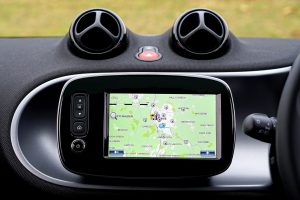
The car rental industry has many challenges, but among the most pressing areas is managing risk and specifically keeping tight control over the provider’s assets. Clients expect prompt and easy access to the vehicle of their choice and at a sensible price, but that may be a tricky balancing act. Many companies now offer expedited rental facilities including remote vehicle access and charging by the hour where clients frequently utilise vehicles back to back with the former renter. Tracking technology is the backbone of the face of the company, but what about fundamental fleet security? Among the dangers inherent in the leasing business is that of theft, or being not able to find a vehicle after it’s been rented out. This is not necessarily the fault of the customer, but having the ability to find a vehicle promptly is essential for any organisation. Whilst it could still be cost-prohibitive to monitor every vehicle on a fleet, it certainly does make sense on premium versions or specialist vehicles. Among the ways that this risk can be mitigated is through using vehicle GPS tracking system in real time. These have numerous ‘pros’ and ‘disadvantages’, but are an effective solution for finding valuable assets.
Pros
There are numerous advantages to using vehicle tracking technology to be able to keep your eye on rental vehicles. Needless to say, vehicles which were stolen may be increasingly difficult to find. However, monitoring technology makes it a lot easier to find the car and potentially lead to the offenders being caught. These programs also feature remote vehicle immobilisation in case the car is stolen. The ability to remotely monitor a cars mileage may also help to help with de-fleeting and upkeep at selected intervals.
These monitoring systems can also help to make sure that the vehicle doesn’t enter restricted areas, like crossing boundaries or across state lines, where they aren’t permitted to go according to the lease terms & conditions. These systems may allow management to better analyse their cost efficiency and emphasise bad driving practices, which could pose significant risk to a leasing company’s profitability. Accelerometers fitted in several units now permit the operator to be notified when a car has an accident or impact however minor. This not only allows them to notify emergency services if needed, but also to better handle any related damage claims. Furthermore, they can help rental companies to cooperate with police investigations, providing detailed records of where the vehicle was and if it had been there. Because of this, tracker units will need to be installed in concealed locations within the vehicle or installed in duplicate, as car thieves are getting more and more savvy at removing devices as soon as they have ownership of the automobile.
Cons
Despite all of the advantages, there are a few down sides which are connected to the monitoring of rental vehicles. Most operators believe that there’s not any direct requirement to track the location of each rental vehicle on fleet, 24hrs a day. The costs involved would be prohibitive and of course the effect on vehicle down time for installation and subsequent removal of these components. Tracking components used to be considerably more costly, which made them a less viable option for the huge majority of companies. Despite these systems becoming more affordable, most rental operators are just interested in who’s driving the car, where and when it was leased from and where and when it’s due back. For this purpose, they have their own rental management systems. Furthermore, some tenants may raise concerns over privacy with vehicle tracking systems.
The Future
Despite these problems, the most recent generation of monitoring devices can help companies to better manage costs, better assess their processes, control damage more efficiently, help with vehicle recovery and better understand the dangers which they’re exposed to. These programs are obvious choices for premium and specialist vehicles that pose a bigger risk. Firms like TrakGlobal have already partnered with some of the larger rental companies such as Europcar, Zipcar and United Rental Systems. You can expect this technology to continue to grow well into the future, with more businesses likely to jump on board the GPS fleet tracking trend.













